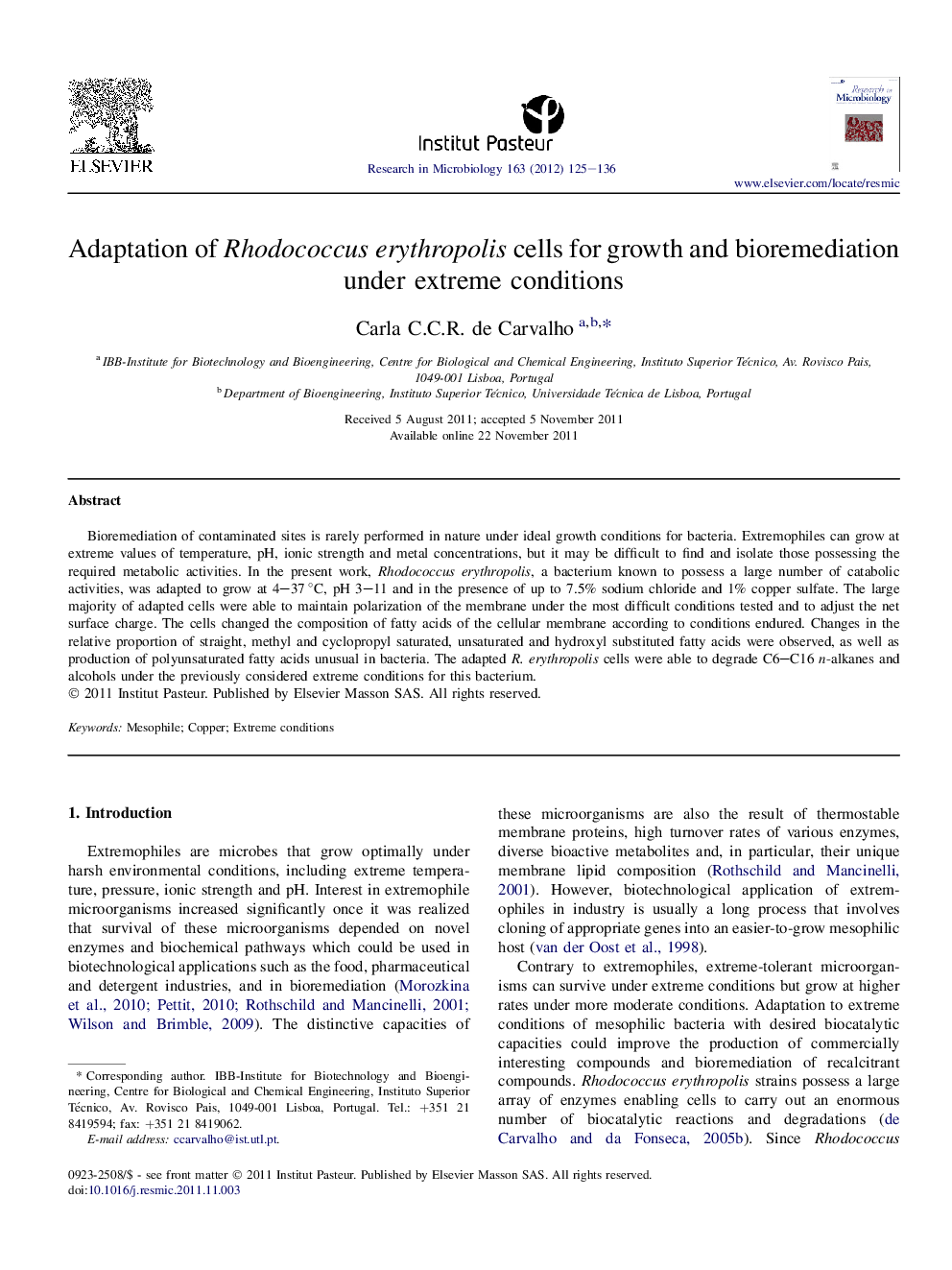| Article ID | Journal | Published Year | Pages | File Type |
|---|---|---|---|---|
| 4358862 | Research in Microbiology | 2012 | 12 Pages |
Bioremediation of contaminated sites is rarely performed in nature under ideal growth conditions for bacteria. Extremophiles can grow at extreme values of temperature, pH, ionic strength and metal concentrations, but it may be difficult to find and isolate those possessing the required metabolic activities. In the present work, Rhodococcus erythropolis, a bacterium known to possess a large number of catabolic activities, was adapted to grow at 4–37 °C, pH 3–11 and in the presence of up to 7.5% sodium chloride and 1% copper sulfate. The large majority of adapted cells were able to maintain polarization of the membrane under the most difficult conditions tested and to adjust the net surface charge. The cells changed the composition of fatty acids of the cellular membrane according to conditions endured. Changes in the relative proportion of straight, methyl and cyclopropyl saturated, unsaturated and hydroxyl substituted fatty acids were observed, as well as production of polyunsaturated fatty acids unusual in bacteria. The adapted R. erythropolis cells were able to degrade C6–C16 n-alkanes and alcohols under the previously considered extreme conditions for this bacterium.
